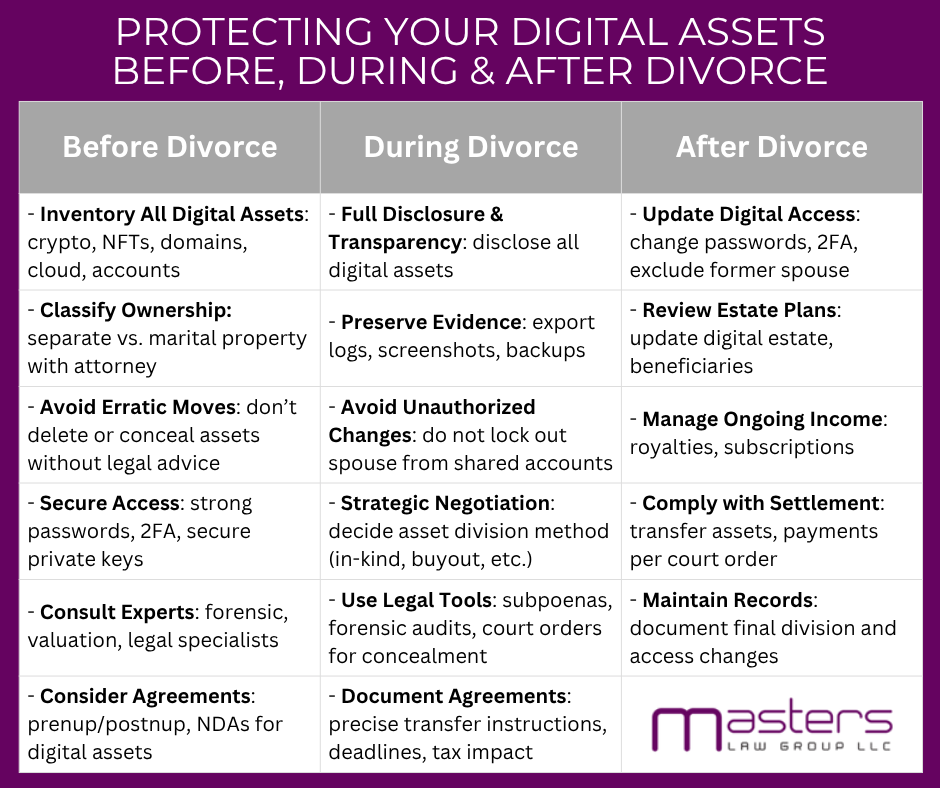Masters Law Group Recognized in 2026 Best Law Firms® Rankings: A Milestone of Excellence
We are thrilled to share the exciting news: Masters Law Group has been recognized in the 2026 edition of the Best Law Firms® rankings.
This prestigious acknowledgment reflects our team’s unwavering commitment to delivering exceptional legal services and our dedication to serving our clients with integrity, experience, and compassion.
Being named among the best is more than just an accolade; it is a testament to the years of hard work, client-focused advocacy, and professional excellence that define Masters Law Group.
What the Best Law Firms® Rankings Represent
The Best Law Firms® rankings, now in their 16th edition, have become a benchmark of excellence in the legal industry. These rankings serve as a trusted guide for clients seeking top-tier legal representation, offering an in-depth view of the firms that consistently deliver outstanding results across multiple practice areas.
The rankings cover an impressive 127 practice areas and 188 local jurisdictions, helping ensure that clients can identify the most qualified firms in their specific legal matters and geographic regions.
For Masters Law Group, inclusion in this list highlights our leadership and success in domestic relations, family law, Hague Convention cases, and other complex legal matters.
Why This Recognition Matters
Being recognized in the 2026 Best Law Firms® rankings carries significant implications for Masters Law Group, our clients, and the legal community at large.
1. Client Trust and Confidence
For clients, this recognition serves as a powerful signal of trust. Legal matters, particularly in areas like family law or international child abduction cases under the Hague Convention, are deeply personal and often complex. Knowing that a firm has been vetted through rigorous evaluation and recognized for excellence provides clients with confidence that their legal matters are in capable hands.
2. Professional Reputation
Awards like these help strengthen a firm’s professional reputation. In an industry where credibility and expertise are critical, being acknowledged by a prestigious, independent ranking amplifies the firm’s standing among peers, prospective clients, and the wider community.
3. Attracting Top Talent
Recognition as a top law firm is also a powerful tool in attracting the next generation of legal talent. Lawyers want to work for firms that are respected, successful, and committed to professional growth. The Best Law Firms® ranking positions Masters Law Group as a destination for top-tier legal professionals seeking a collaborative and high-achieving environment.
Masters Law Group: A Legacy of Excellence
At the heart of Masters Law Group’s success is a team of dedicated professionals committed to serving clients with both skill and compassion. Founded on principles of integrity, advocacy, and client-centered service, the firm has built a reputation for delivering results in even the most complex legal matters.
Domestic Relations and Family Law
Masters Law Group is highly experienced in family law matters, including divorce, allocation of parental responsibilities, and more. These matters often involve emotional, financial, and legal complexities that require a nuanced, strategic approach. Our team is skilled at guiding clients through these challenging processes with professionalism, empathy, and a relentless commitment to their best interests.
Hague Convention and International Child Abduction Cases
We also stand out in Hague Convention cases, which involve the international recovery of abducted children. These cases require not only extensive legal knowledge but also the ability to navigate international law, coordinate with foreign authorities, and act swiftly to help protect children’s rights.
Client-Centric Approach
Across all practice areas, Masters Law Group emphasizes a client-centric approach. We believe that effective legal representation goes beyond knowledge of the law; it involves active listening, strategic problem-solving, and clear communication. By understanding each client’s unique circumstances and goals, the firm can develop tailored solutions that achieve meaningful outcomes.
The Rigorous Path to Recognition
While accolades are gratifying, what makes the Best Law Firms® recognition truly meaningful is the rigorous journey behind it. The award is not based on self-nomination or promotional efforts; it relies on objective data, peer input, and client satisfaction.
Client Perspectives
With over 110,000 client references, the data gathered reflects real-world experiences. Clients share detailed feedback on the firm’s responsiveness, professionalism, and effectiveness, giving the rankings a practical foundation that speaks to results.
Peer Insights
Peer evaluations provide another critical lens. Lawyers are often the most informed judges of legal competence, and their input helps ensure that the recognition reflects both client satisfaction and professional excellence.
Industry Analysis
Finally, in-depth analysis of firm operations, outcomes, and market presence completes the picture. Only firms demonstrating consistent, exceptional performance across these dimensions earn a place on the list.
By excelling across all these measures, Masters Law Group demonstrates that its success is not accidental; it is built on decades of experience, careful strategy, and dedication to clients’ needs.
What This Means for Clients
For individuals and families seeking legal guidance, Masters Law Group’s recognition provides assurance of quality, credibility, and reliability. Whether you are navigating divorce, parenting agreements, adoption, or complex international child custody matters, you can trust that our team has the experience and knowledge to guide you.
The Best Law Firms® ranking is a practical resource for clients seeking assurance that the firm they choose is not only skilled but also highly respected by both peers and former clients.
Looking Ahead: Continuing Our Commitment
At Masters Law Group, we are committed to continuing our tradition of excellence, adapting to evolving legal landscapes, and expanding our services to meet the needs of clients in Chicago, across Illinois, in California, and internationally.
Some of the initiatives we are focused on include:
- Enhancing Client Experience: Implementing innovative solutions and technologies to streamline communication and case management.
- Professional Development: Continuing to invest in our team’s skills and knowledge to help ensure clients receive the most informed guidance possible.
- Community Engagement: Supporting initiatives that strengthen families and communities, aligning with our core values of service and advocacy.
Testimonials and Client Success Stories
Our clients’ experiences are at the heart of why we do what we do. Over the years, we have guided countless families through complex legal challenges, and their feedback has been instrumental in our recognition by Best Law Firms®.
“I found Anthony Joseph and Erin masters of Masters Law Group on Avvo. I needed desperate help for a case that I had been dealing with alongside the state for years. Calling in tears, Anthony assured me he’ll fight for me. He has done nothing less! Dealing with a tough year, he was always there to tell me it’s going to be okay and deal with my ever-so-gracious ex. He is there whenever you need him! Email, call, how up in court the day before Thanksgiving! I would highly recommend!” – Lynn
“If I didn’t have the direction and focus of these two, we wouldn’t have won. Anthony is a shark; no one will work harder and smarter and know every detail in the court like this man. AND ERIN!!!!! She is dotting all the i’s and crossing the T’s. Because of these two, my children are safe with me in the USA, and we won an extremely difficult to win case. 9/10 times, the children have to go back to the country they were taken from, in this case, it was Mexico. I had the odds stacked against me hugely. Because of their expertise in Hague, they found the important details to keep my kids and me away from our abuser, who tried to get us back into the scary situation we were living in. THANK YOU TO YOU BOTH. Every day I’m grateful for them changing my life.” – Sharon H.
Strengthening Our Legacy Through Recognition
Recognition in the 2026 Best Law Firms® rankings strengthens our firm’s legacy. It affirms that Masters Law Group continues to meet the highest standards of legal practice and positions us to expand our influence and impact in the legal field.
Being named one of the best is not just an honor; it is a responsibility. It reinforces our commitment to deliver outstanding results, maintain ethical excellence, and continue building lasting relationships with clients.
Acknowledging Our Team
Of course, this recognition would not be possible without our dedicated team of attorneys, paralegals, and staff. Each member of Masters Law Group contributes to a culture of excellence, collaboration, and client-focused service. Their skill, diligence, and passion for the law are the foundation of our firm’s success.
Final Thoughts
The recognition of Masters Law Group in the 2026 Best Law Firms® rankings is a moment of pride for our team, our clients, and the communities we serve. It underscores our dedication to providing exceptional legal services, upholding ethical standards, and continuously striving for excellence.
As we celebrate this milestone, we also look forward to continuing our mission: helping clients navigate complex legal matters with confidence, care, and clarity. Our inclusion in the Best Law Firms® rankings is a reflection of our ongoing commitment to these principles and a promise that we will continue to deliver the high standards our clients deserve.
We are grateful to our clients for their trust, to our peers for their respect, and to our team for their tireless dedication. Here’s to another year of excellence, growth, and outstanding service.
For more information about Masters Law Group and our services, visit masters-lawgroup.com.
Disclaimer: This blog is for informational purposes only and does not constitute legal advice. If you need legal assistance, please contact the qualified attorneys at Masters Law Group. Our firm can help you handle your family law case in Illinois, including divorce, custody, and mediation services.



































